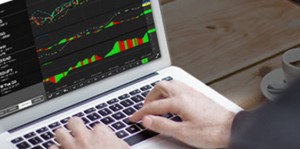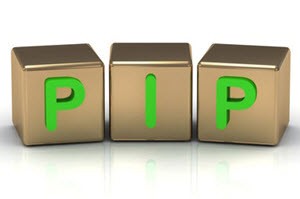Forex, also known as FX, is an abbreviation of foreign exchange market. In its most basic form, the foreign exchange market exists because people, companies and other legal entities using different currencies do business with each other. In the Ancient world, a Greek spice importer could have a need to swap his Greek coins for Egyptian coins before he made a purchase of spice in northern Africa. Today, were are essentially doing the same thing, even though our modern multinational forex market has evolved into something highly complex.
 Due to fluctuations in the value of a currency, in relation to other currencies, it is possible to make a profit by trading in currencies (FX trading). FX speculators doesn’t have a need for foreign currency to pay for imported spices; they simply want to make a profit from buying and selling currency on the FX market.
Due to fluctuations in the value of a currency, in relation to other currencies, it is possible to make a profit by trading in currencies (FX trading). FX speculators doesn’t have a need for foreign currency to pay for imported spices; they simply want to make a profit from buying and selling currency on the FX market.
You don’t need to be professional currency trader with huge amounts of money to risk to be a profitable FX trader, since there are FX trading platforms available online where you can trade even small amounts. Thanks to the advent of the internet and online retail FX trading platforms, FX trading has become a popular hobby.
A lot have changed since the first platforms for online retail FX trading were launched, and today’s platforms tend to have a lot of tools for the trader to make use of. You can get help with statistical analysis, receive tailor-made news feeds, utilize automated orders, and much more. Some platforms are downloadable programs that you must install on your computer, but there are also platforms available where you carry out your transactions directly in your browser window. Recently, special trading apps has been launched for mobile touch screen devices using iOS, Android or Windows Mobile.
If you have none or little experience with stock, forex or other kinds of money trading, we also recommend you to try binary options, which is a new simple way of gambling with the stockmarket, forex and much more.
Currency pairs
On the FX market, currencies are traded in the form of currency pairs. Examples of commonly traded pairs are EUR/USD, GBP/USD and USD/JPY.
Some trading platforms will use the format “EUR/USD” while others prefer the “EURUSD” model. They both mean the same thing; it is just two different ways of expressing it. In both examples, EUR is the base currency and USD is the counter currency. For the currency pair EUR/CAD, the Euro is the base currency and the Canadian Dollar is the counter currency, and so on.
Example: EUR/CAD 1.5417 means that the price of 1 Euro is 1.5417 Canadian Dollars.
All currencies have a three letter currency code established by the ISO 4217 standard.
What’s a forex pip?
A forex pip is a unit utilized to denote value changes for currency pairs.
 Example: The exchange rate for the currency pair EUR/USD changes from 1.0837 to 1.0832. This is a 5 pip change.
Example: The exchange rate for the currency pair EUR/USD changes from 1.0837 to 1.0832. This is a 5 pip change.
Most major currencies on the FX market are priced in four decimal planes, with 1 pip being one unit of the 4th decimal point. An important exception is the Japanese Yen (JPY) which is priced in second decimal planes, with 1 pip being one unit of the 2nd decimal point.
Examples of currency pairs where 1 pip is one unit of the 4th decimal point:
- EUR/USD
- GBP/USD
- EUR/GBP
- USD/CHF
- GBP/CHF
- USD/CAD
- AUD/USD
- NZD/USD
Displaying fractional pips
Some forex trading platforms online display changes as small as 1/10 pip. This means that a currency pair such as EUR/USD will be displayed down to the 5th decimal, while a currency pair such as EUR/JPY will be displayed down to the 3rd decimal.
What’s carry trade?
When a speculator obtains a low-interest internet loan in one currency, and converts the money into another currency to make a high-interest investment, it is called carry trade.
Forex brokers
What are forex brokers
A forex broker is a company that offers a platform for traders to buy and sell currencies. Some brokers trade directly with the trader and some brokers provide the trader access to the open market. Forex brokers facilitate access to the global currency market, which is decentralized and operates 24 hours a day 5 days a week.
Forex brokers earn money through spreads (the difference between the bid and ask price) or commissions. Some offer a combination of both. Market makers will also make money when the trader loses money. To avoid this, always choose a ECN broker.
Reputable brokers are regulated by financial authorities, such as the FCA in the UK or the NFA in the US. Always choose a broker regulated by a strong regulator. Always check which regulation traders from your country is placed under. Traders in different countries can be subject to different rules.

